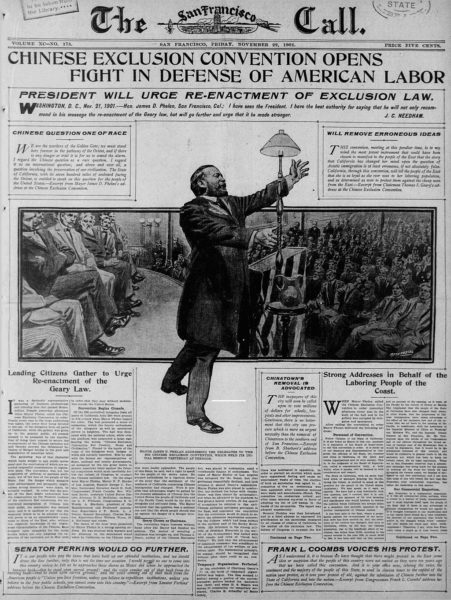EDITORIAL UPDATE, 12/8/21, 1:26 PM ET: All references of attribution to “MIT study,” in the previous version of this blog were changed to “MIT Technology Review” and “MIT Technology Review investigation”.
An MIT Technology Review investigation of the FBI’s “China Initiative” exposed a pattern of civil rights abuses California Congresswoman Judy Chu described as “startling.” Speaker of the House Nancy Pelosi and Senate Majority Leader Chuck Schumer are rushing to pass companion legislation that would significantly expand the FBI initiative by compelling every agency and department of the federal government to scrutinize, discourage and interrupt routine US contacts with China. Congress should immediately suspend consideration of the legislation pending further review.
MIT Technology Review found that what began as an effort to combat Chinese economic espionage “strayed far from its initial mission” and evolved into unfocused assault on the personal and academic integrity of Chinese American scholars. The study examined 77 cases involving 150 defendants. Many of the cases had no discernible link to national security, intellectual property theft or proprietary economic information. 90% of the FBI’s targets were of Chinese heritage.

The new legislation, which aims to promote US competition with China, would significantly enlarge the scope of US government scrutiny. The Senate version of the bill creates scores of new undersecretaries dedicated to ferreting out suspected communist influence in all US governmental and non-governmental activities connected to China. These ideological commissars will investigate the U.S. citizens, businesses, educational institutions, and civic groups engaged in those activities. Chinese Americans will inevitably bear the brunt of these highly disruptive government intrusions into private lives.
MIT Technology Review reported the comparatively limited FBI initiative created a “climate of fear” that is “endangering America’s ability to attract new talent in science and technology.” Schumer’s bill would spread that fear to everyone who participates in routine economic, social and cultural interactions between Chinese and Americans. The MIT Technology Review investigation reveals this type of government harassment is counterproductive; more likely to weaken US competitiveness than to strengthen it.
The House approach to legitimate US concerns about Chinese economic competition is better. It is more focused on investing in US science and technology than in seeking out and destroying US ties to China. This difference between the House and Senate legislation is why it stalled earlier this year. It is unclear why Schumer was pressing Pelosi to get the House to adopt the Senate bill before the December holiday break. The two reportedly reached an agreement to advance the legislation shortly after the beginning of the new year.
Rather than trying to rush through legislation that the MIT study suggests will bring more grave and irreparable harm to Chinese Americans, both houses of Congress should take time to go through the bill carefully and strip out provisions that not only repeat but amplify the dangers of the FBI’s China Initiative.

